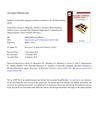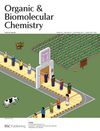 32 citations,
March 2020 in “Drug Design Development and Therapy”
32 citations,
March 2020 in “Drug Design Development and Therapy” Finasteride shows promise for female hair loss, but more research needed.
 16 citations,
October 2019 in “Biological & Pharmaceutical Bulletin”
16 citations,
October 2019 in “Biological & Pharmaceutical Bulletin” Houttuynia cordata extract may help hair grow by improving cell survival and increasing cell growth.
 166 citations,
November 1990 in “Journal of Investigative Dermatology”
166 citations,
November 1990 in “Journal of Investigative Dermatology” Minoxidil sulfate stimulates hair growth.
[object Object]  3 citations,
September 2021 in “Journal of Food Science and Nutrition”
3 citations,
September 2021 in “Journal of Food Science and Nutrition” Red Ginseng Extract helps hair grow and improves skin health by stimulating cell growth and enhancing the body's antioxidant defense system.
 March 2023 in “International Journal of Trichology”
March 2023 in “International Journal of Trichology” Using both minoxidil and finasteride together is more effective for male hair loss than using either one alone.
June 2024 in “Journal of Drug Delivery Science and Technology” Nanocarrier-based treatments show promise for better hair growth in androgenetic alopecia but need more research.
 January 2022 in “Biomedical Reports”
January 2022 in “Biomedical Reports” Inaudible sound at 30 kHz can boost hair growth and decrease hair loss by promoting cell growth and reducing cell death in hair follicles.
 6 citations,
February 2022 in “Journal of immunology research”
6 citations,
February 2022 in “Journal of immunology research” Exosomes from fat-derived stem cells can potentially improve hair growth and could be a new treatment for immune-related hair loss.
 1 citations,
July 2017 in “Clinical research in dermatology”
1 citations,
July 2017 in “Clinical research in dermatology” Hair loss, known as Androgenetic Alopecia, is often caused by hormones and can be diagnosed using noninvasive techniques. Treatments include topical minoxidil and oral finasteride, with new treatments being explored. There may also be a link between this type of hair loss and heart disease risk.
 90 citations,
May 1972 in “Clinical Pharmacology & Therapeutics”
90 citations,
May 1972 in “Clinical Pharmacology & Therapeutics” Minoxidil quickly leaves blood, turns into urine metabolites, and has lasting blood pressure-lowering effects.
 January 2023 in “IntechOpen eBooks”
January 2023 in “IntechOpen eBooks” The document concludes that specific methods for making diazine-based drugs can lead to high yields and are important for creating effective treatments for various diseases.
 68 citations,
September 1990 in “Biochemical Pharmacology”
68 citations,
September 1990 in “Biochemical Pharmacology” Minoxidil activates hair growth by being sulfated by P-PST in the human liver.
 9 citations,
December 2006 in “Annals of the New York Academy of Sciences”
9 citations,
December 2006 in “Annals of the New York Academy of Sciences” Minoxidil helps hair growth by increasing blood flow and stimulating hair follicles.
 16 citations,
October 2018 in “Biochemical and Biophysical Research Communications”
16 citations,
October 2018 in “Biochemical and Biophysical Research Communications” Sildenafil, often used for erectile dysfunction, may help hair growth.
 10 citations,
January 2021 in “Journal of Ginseng Research”
10 citations,
January 2021 in “Journal of Ginseng Research” Red ginseng oil may help grow hair and protect skin from UVC light.
 6 citations,
January 2016 in “Bioorganic & Medicinal Chemistry Letters”
6 citations,
January 2016 in “Bioorganic & Medicinal Chemistry Letters” Some minoxidil combinations can help differentiate leukemia cells without harming other cells.
 13 citations,
June 2019 in “Case reports in dermatology”
13 citations,
June 2019 in “Case reports in dermatology” Fat injections in the face can cause hair loss.
 8 citations,
January 2011 in “Organic and Biomolecular Chemistry”
8 citations,
January 2011 in “Organic and Biomolecular Chemistry” Minoxidil reacts to nitrosation 7 times more than phenol, mainly due to its -NH₂ groups, leading to the creation of N-nitrosominoxidil.
 40 citations,
July 1995 in “Toxicologic Pathology”
40 citations,
July 1995 in “Toxicologic Pathology” Minoxidil can harm dog's heart.
 29 citations,
October 1996 in “Toxicology and Applied Pharmacology”
29 citations,
October 1996 in “Toxicology and Applied Pharmacology” Higher minoxidil doses in dogs cause faster heart rate, lower blood pressure, and heart issues.
 21 citations,
January 2015 in “Journal of Dermatological Science”
21 citations,
January 2015 in “Journal of Dermatological Science” Ginsenosides in Panax ginseng boost hair growth like minoxidil.
 13 citations,
March 2021 in “British Journal of Pharmacology”
13 citations,
March 2021 in “British Journal of Pharmacology” KY19382 helps regrow hair and create new hair follicles.
 13 citations,
June 2020 in “Journal of Dermatological Treatment”
13 citations,
June 2020 in “Journal of Dermatological Treatment” Topical finasteride helps regrow hair and reduce hair loss in men and women.
 November 2024 in “Applied Sciences”
November 2024 in “Applied Sciences” Placenta products might help with hair loss, but more research is needed.
 12 citations,
February 2010 in “Tetrahedron Letters”
12 citations,
February 2010 in “Tetrahedron Letters” New minoxidil compounds with better water solubility were made, but their full effects and safety need more research.
 5 citations,
December 2006 in “Annals of the New York Academy of Sciences”
5 citations,
December 2006 in “Annals of the New York Academy of Sciences” Minoxidil boosts hair growth by undergoing a process in hair follicles and certain skin cells, and by increasing the production of compounds essential for hair growth and maintenance.
[object Object]  1 citations,
June 2023 in “Chemical engineering journal”
1 citations,
June 2023 in “Chemical engineering journal” A new microneedle patch treats hair loss effectively with fewer side effects and less frequent use.
 December 2023 in “Annales Pharmaceutiques Françaises”
December 2023 in “Annales Pharmaceutiques Françaises” The UV–Vis Spectrophotometry method effectively measures minoxidil in rat skin for alopecia treatment.
 November 2023 in “Current Dermatology Reports”
November 2023 in “Current Dermatology Reports” Oral minoxidil is effective for various hair loss types and may improve male sexual function, but aspirin can reduce its effectiveness.
January 2021 in “Medical research archives” The 5% minoxidil lotion without propylene glycol is effective, well-tolerated, and cosmetically acceptable for hair loss.




























